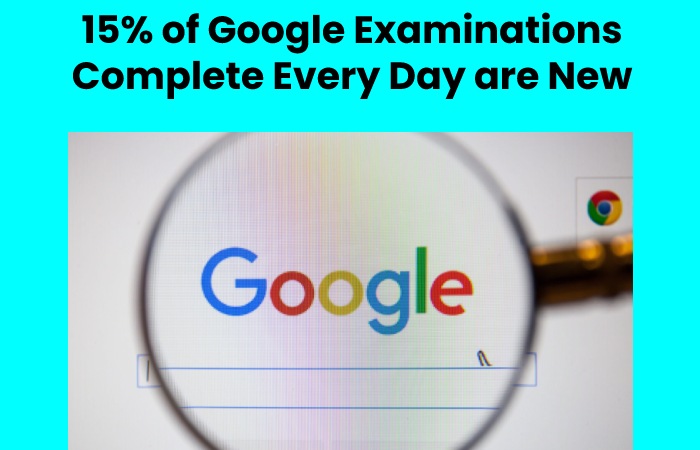Facts About Google – Google just introduced a calm new feature to its search engine, which should cure your boredom and keep you busy forever. You must officially visit Google and search “I’m feeling curious” or “fun facts.” Google will then return an interesting random fact, usually pulled from Wikipedia or news sites.
You can then keep pressing “Ask another question,” and Google will keep supplying you with fun facts.
Table of Contents
Origin of the Name “Google.”
Facts About Google – In 1996, Larry Site and Sergey Brin called their early search engine “BackRub,” named for examining the web’s “back links.” Larry’s office remained in room 360 of the Gates CS Building, where he was familiar with numerous other graduate students, including Sean Anderson, Tamara Munzner, and Lucas Pereira. In 1997, Larry and his officemates discussed several possible new names for the rapidly improving search technology. Sean recalls the final brainstorming session one day throughout Sep. of that year.
Sean sat at his computer terminal, so he searched the net domain name archive database to see if the newly suggested name was still available for registration and use. Unfortunately, Sean is not an infallible speller and made the mistake of searching for the name spelt as “google.com,” which remained available. However, Larry liked the word, and within hours he registered the name “google.com” for himself and Sergey
The Number Googol Inspired Google
While Google sounds like an unintentionally catchy name, it is a play on the exact term googol, which is the number one trailed by 100 zeros. It remained rumoured that Google is a misspelling of googol, which is half true. However, when associated Stanford University student Sean Anderson checked whether the Googol domain was accessible, he typed “Google” instead.
Google co-founders Larry Site and Sergey Brin selected the name to reflect the large amounts of data analyzed by their search engine.
Global Internet Usage Released 40% During Google’s Five-Minute Outage in 2013
Google doesn’t go down often, but the world comes to a standstill when it does.
Just before a night on the 16th of August 2013, a blackout was moving all of Google’s services, including Search, Gmail, and YouTube, for a few minutes. Through those few minutes, Internet traffic worldwide dropped 40%, according to GoSquared, a web analytics company. It shows how dependent we are on Google and its services.
Google Tried to Extensive Its Search Engine to Yahoo for $1 Million in 1997
Facts About Google – Backbone in 1997, when Google was still a little-known company. Co-founders Larry Site and Sergey Brin accessible to sell it to Yahoo for $1 million
By the time 2002 trolled around, Google had become more successful, at which point Yahoo obtainable $3 billion to buy it. Google rejected the offer and demanded $5 billion, which Yahoo rejected. As a result, Google hit a net value of $2 trillion in 2022.
One of the primary blunders in the history of deals, right? Maybe not so, because one of the details Google became massively influential is because of the team behind it. If Yahoo had bought it, Google would not be what it is today.
15% of Google Examinations Complete Every Day are New

With trillions of yearly searches, you might expect people to repeatedly search for the same thing. However, you may be amazed to study that 15% of Google searches made daily are new and unique.
The Word “Google” Remained Officially Recognized as a Verb in 2006
Since Google’s beginning in 1997, its online dominance has skyrocketed, and it has become an essential tool in our day-to-day lives. As a testament to Google’s grip on the web. The word “google” remained officially added to the Oxford English Vocabulary in June 2006 and the Merriam-Webster Collegiate Dictionary in July 2006.
Google Apps and Chromium
In 2006, in what several in the industry careful the opening salvo in a war with Microsoft. Google presented Google Apps—application software offered by Google that runs through users’ Web browsers. The first free plans included Google Calendar (a preparation program), Google Talk (an instant messaging program), and Google Page Creator. Users watched advertisements and stored their data on Google’s apparatus to use these free programs. This type of placement is often called cloud computing, in which both the data and the programs are located somewhere on the Internet.
Conclusion
Facts About Google – Google started as an online exploration firm, but it now proposes more than 50 Internet facilities and products. From e-mail to online text creation. The name “Google” is a wordplay on the mathematical term ‘googol’ which is represented by the number 1 followed by a hundred zeroes.
Related posts
Featured Posts
Vanessa Bryant: Who is She? Vanessa Bryant Net Worth 2021
Vanessa Bryant Net Worth – The mother nationality of Vanessa is the American Vanessa Cornejo Urbieta. However, she was born…
What exactly is Google App Console? – Smart Tech Crunch – 2022
You may expand your Google Play company by using the Google Play App Console to publish your applications and games….


